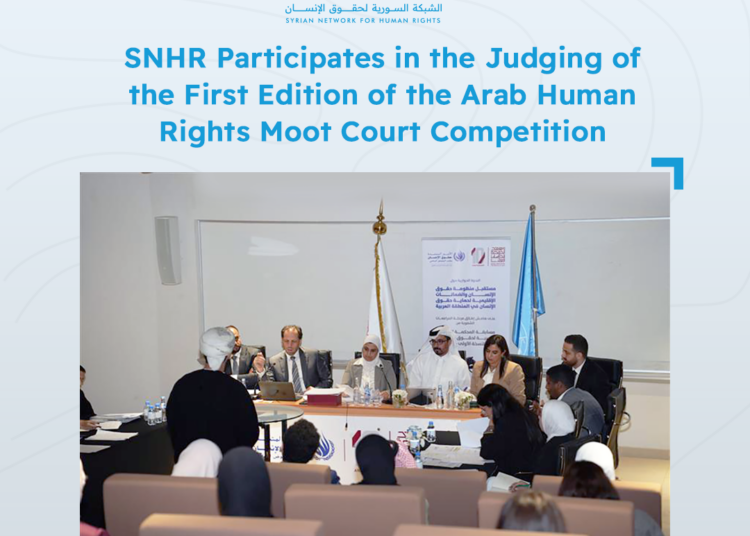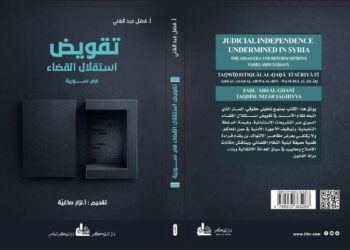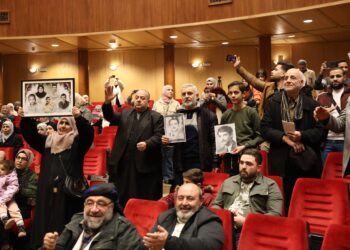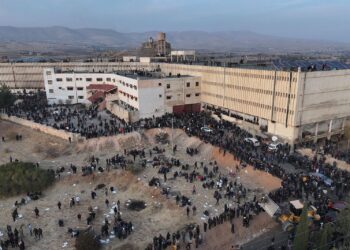The Director of the Syrian Network for Human Rights, Professor Fadel Abdul Ghani, participated as a judge in the first edition of the Arab Moot Court Competition for Human Rights. The competition was organized by the United Nations Human Rights Training and Documentation Centre for South-West Asia and the Arab Region, affiliated with the Office of the High Commissioner for Human Rights. The competition was hosted by the College of Social and Human Sciences at the Doha Institute for Graduate Studies, and featured participation from numerous universities from various Arab countries.
From the start of the competition until the closing session, Professor Fadl Abdul Ghani participated in all stages of the judging process, including:
- Moderating oral arguments for both the prosecution and defense, and posing standardized judicial questions to gauge legal understanding and ability to apply international human rights standards.
- Deliberating with the judging panel to issue final assessments based on the principles of integrity, impartiality, and proportionality, leading to the identification of the qualifying and winning teams.
- Providing feedback and recommendations to participating master’s students on constructing arguments and the logic of reasoning in human rights cases.
Professor Fadel Abdulghany said on this occasion:
“This unique initiative confirms the role of practical education in instilling a culture of human rights and building a generation of legal professionals capable of strategic litigation, drafting professional memoranda, and pleading before real judicial bodies. We thank the organizers and hosts for this effort, and we appreciate the enthusiasm of the participating teams and their commitment to academic and ethical standards.”
SNHR appreciates the partnership between the United Nations Training and Documentation Centre and the College of Social and Human Sciences at the Doha Institute for Graduate Studies, which provided a high-quality academic and professional environment for master’s students to simulate litigation procedures in human rights cases, enhancing practical knowledge in areas such as: factual formulation, determining jurisdiction, admissibility, balancing rights and freedoms, and the criteria of necessity and proportionality.
The Network’s participation comes within the framework of its mission to enhance legal capacity building in the Arab region and support clinical legal education initiatives that contribute to linking theory with practice, developing legal litigation skills, and drafting pleadings in accordance with international standards. The network affirms its readiness to continue cooperating with academic and international bodies to expand the scope of this competition and transform it into an annual tradition that contributes to providing Arab justice arenas with experienced professionals.






